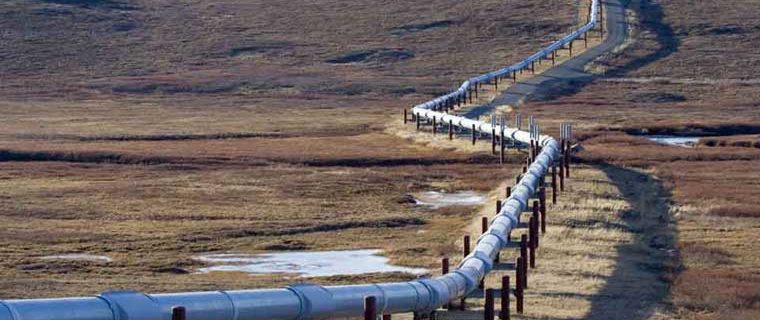
Is Canada Finding Its Way to Carbon Pricing and Its Economic Self Interest?
Over the last month, the Canadian federal government, led by Justin Trudeau, had given indications that it intended to establish a national carbon pricing standard. Now, it is here. On October 2, the Trudeau government announced its national pricing standard to Parliament.
Some key elements:
- There will be an initial price of $10/tonne in 2018, escalating to $50/tonne by 2022
- Economy and country-wide, all provinces must conform or the federal government will impose its own federal pricing scheme.
- There will be no federal preference for carbon taxes over cap-and-trade in how provinces apply the standard.
- The pricing standard would be “revenue neutral” to the federal government.
Notably, this regime resembles the current British Columbia and Alberta carbon tax regimes that are now set at $30/tonne. The Alberta tax would escalate at 2% per year, but would be conditional on how other relevant jurisdictions are imposing carbon pricing themselves.
It is unclear how this new carbon pricing standard will relate to other climate measures, federally or in the provinces. The Trudeau government has not made clear how it intends to deal with energy-intensive trade-exposed industries, or how this new policy relates to the Paris commitments (about a 25 percent reduction from today’s emissions by 2030). There has been no allocation of the national emission reduction target to specific provinces, and no reconsideration of existing national emission reduction targets in general.
We can expect that these details will emerge over the next few months, as Trudeau has now committed his young government to a carbon price.
But the national carbon standard won’t be the only matter of climate and energy policy up for debate in the coming months. The Trudeau Government has reaffirmed its intention to finally resolve the fate of at least two major hydrocarbon projects accessing Canada’s West Coast. How the new carbon price affects the approval of these two projects will strongly indicate Trudeau’s commitment to economical carbon policy.
And I would wager that we can expect some trading. The Premier of Alberta immediately reacted that her support for the new carbon pricing plan is conditional on the approval of “new pipelines.” Some informal trading may have already started.
On September 28, the Trudeau government approved the Petronas LNG project, located at Prince Rupert, British Columbia. This approval comes even though the project will increase absolute Canadian emissions by roughly 1-2 percent (a significant part of the Paris pledge). The approval was enthusiastically welcomed by the Canadian hydrocarbon industry—particularly by the Alberta and British Columbia governments. The actual decision to proceed now sits with Petronas and its view of world LNG markets and relative economic merits of its project.
But a decision on the Kinder TransMountain Pipeline expansion is more critical. For oil sands producers, the Kinder approval would offset the Obama denial of Keystone XL. If approved and constructed within the next two years, Canada would receive material improvement in its existing cash flow derived from its oil sands output. A decision is set to be made before the end of the year.
Whereas an LNG approval could always be rationalized as improving the global carbon balance, via natural gas for coal substitution in Asia, a Kinder approval will facilitate the expansion in production of one of the world’s most carbon intensive sources of crude oil. Never mind the immateriality of any fairly attributed incremental emissions derived from such production; this will be a hard pill for Greens to swallow.
Finally, the Trudeau government has reiterated its intention to ratify the Paris climate agreement before year end, regardless of whether it is in agreement with the Canadian provinces on how the commitments embedded in that agreement are to be met. Canada would be expected to reduce its GHG emission by roughly 25% from current levels by 2030. That will be a tough challenge, with only a small component of coal in the country’s current energy mix and the potential for expanding Canadian hydrocarbon production. Nevertheless, the Canadian environment Minister mused soon after her appointment last year that current Canadian emissions targets are “only a floor, not a ceiling of Canadian ambition.”
As such, over the next three months, the Trudeau government has to make some seminal climate decisions: on the Paris Accord ratification, the Kinder project approval, and a national pricing standard to put in play.
If the pipelines and energy infrastructure are up for trade, how will a Kinder approval be rationalized within this framework? Alberta is certainly expecting a quid pro quo for taking its initiative on carbon pricing last year. The government’s carbon standard is unlikely to materially impact oil sands output in the near or medium term, but relieving the lack of market access will. That might explain why Alberta chose to impose a cap on future emissions from the oil sands sector, notwithstanding applying its own carbon tax. How binding that cap will ever be in the short and medium term is much debated, but the Trudeau government can use it as part of the rationalization for an approval.
I now expect that a Kinder approval by year end is more likely than not, despite its potential to slightly increase domestic emissions, as the Trudeau government acquiesces to essential economic considerations. But how difficult it may still be for the Trudeau government to actually get to that decision must not be dismissed or downplayed.
Any Kinder approval is a rejection of the logic that animated the Obama decision on Keystone XL. An approval will facilitate the growth in production of one of the world’s most carbon intensive sources of crude oil. There should be little doubt that the Canadian environmental community, and other leftist elements in the country, will be near apoplectic in their outrage and frustration. For them, carbon policy isn’t credible unless it culminates in Canadian hydrocarbons being left in the ground, existing production scaled back, and no approvals of major pipeline infrastructure to achieve market access.
Perhaps, the Trudeau government gets that the world will not price carbon—either explicitly or implicitly—at values approaching $200/tonne, as would be required to drive natural gas and crude oil out of the energy mix. Perhaps, it will appreciate that other economies, including the United States, will continue to develop unconventional oil and gas, regardless of promises made in Paris.
Ironically, a Kinder approval, when coupled with this national pricing standard, would allow Trudeau to claim victory where Stephen Harper could not. Trading pipeline access for ease in national carbon pricing would achieve vital market access for pipelines, while also improving the credibility of Canada’s national climate policy.
